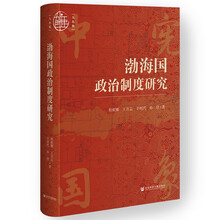Chapter 1 Introduction
1.1 What is behind the rapid development of renewable energy in China?
1.2 Renewable energy policy change as the dependent variable
1.3 The role of the climate change regime in the renewable energy policy change
1.4 Strengthening of the pro-renewable energy coalition and main assumption
1.5 Plan of this book
Chapter 2 Theoretical Framework
2.1 Socialization theory and bidirectional interaction
2.2 Interlinking the socialization process with domestic advocacy coalition building
2.3 Strengthening of the advocacy coalition in socialization and its role in policy change
2.4 Applicability of the theoretical framework in China
Chapter 3 Background of Renewable Energy Development and the Renewable Energy Policy Change Process in China
3.1 The fossil fuel-dominated energy supply mix
3.2 Rapid RE development and emerging problems
3.3 Process tracing of RE policy change in China
3.4 Framework of the RE policy system and its characteristics
Chapter 4 Process-tracing of China's Participation in the Climate Regime
4.1 The climate change regime
4.2 Process-tracing of China's participation in the climate change regime
4.3 China's interest cognition in the climate change regime and its implications for domestic policy change
Chapter 5 Capacity Building of the Pro-RE Coalition Through Climate Change Socialization
5.1 Institutional reforms in the energy sector and characteristics of the energy policy-making system in China
5.2 Institutional anchoring in the role playing process and the strengthening of the pro-RE coalition
5.3 Resource reallocadon in the strategic calculation and the pro-RE coalition building
Chapter 6 The Renewable Energy Policy System and Characteristics of the Pro-RE Coalition in China
6.1 The pro-RE coalition in the RE policy system of China
6.2 Key actors in the RE policy system of China
6.3 Institutional characteristics of the pro-RE coalition in China
Chapter 7 The Role of the Strengthened Pro-RE Coalition in RE Policy Change: The Introduction of the Quota System to Combine with the FIT
7.1 From the feed-in tariff policy to introducing the quota system
7.2 Policy-oriented learning in RE policy change
7.3 Argumentative persuasion and RE policy change
7.4 Influence of the mandatory RE quota system for a low-carbon transformation of China
Chapter 8 Conclusion
8.1 Returning to the research question and research variables
8.2 Theoretical perspectives
8.3 Main empirical findings
Appendix I The Renewable Energy Policy System in China
Appendix II Key Governmental and Societal Actors in the Renewable Energy Policy System of China
Bibliography
展开










